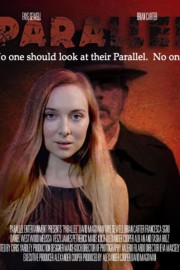Parallel
There are definitely some issues with the sound mix in “Parallel.” I need to get that out of the way early, because it didn’t help my enjoyment of an otherwise compelling drama having the music sometimes mixed over the dialogue, or sound effects all of the sudden louder than they were before. Yes, there are times when such things can be used for dramatic impact, but here, I felt as though it hurt the film in a way that, probably, was not intentional. Now that I got that out of the way, time to discuss the film on a larger canvas.
When I first began watching Ieva Makselyte’s “Parallel,” I kind of had the idea of what I might be getting into in terms of narrative, and it reminded me of the Gwyneth Paltrow drama, “Sliding Doors,” from the ’90s. There’s definitely a lot more going on in Makselyte’s film, with its script by David Magowan, than that, but it still gives us a look at the parallel lives of its main character, Heather (Faye Sewell), although this has a more supernatural bent on it. She meets Neil (David Magowan) one night at a co-worker’s birthday party, and they begin an immediate relationship that starts well enough. One day, they are walking in a park when they happen on Machlis (Brian Carter), an older man who calls himself a medium. Unlike many mediums, however, Machlis has a unique realm he is connected to, and that is his ability to show his clients their parallel lives. When he tells Heather and Neil this, Neil is immediately skeptical, but Heather wants to try it. What she experiences in their first session will change their lives forever.
It might seem as though you can figure out where this film is going to go, but I’m not quite sure if you will be able to. While the film has other issues in terms of performances and execution that make it feel very low budget to go with its sound issues, I still found myself drawn into the way Magowan and Makselyte tell this story. I kind of love the way the film comments on relationships, and how we might view our own, if we were to get a glimpse of a life different of our own in this way, and how Heather and Neil react to that first session says a lot about the allure of what Machlis is offering them. One thing that is interesting about the parallel life he shows Heather is that her parallel self is opposite of her actual self, and he cautions her about trying to replicate such behavior outside of the parallel, and seeing how that plays into the story is an compelling comment on the characters themselves, and also makes you wonder what might happen if they did. The ending implies greater psychological tolls are being placed on Heather and Neil, but I don’t want to dig too far into that, and ruin things.
I felt the need to get probably my biggest issue with the film (its kind of bad sound mix) because I’d like people who seek this film out- and it can be found on Amazon Prime Video- to know something of the experience they’re going to have technically. It makes for a difficult viewing experience, but I would still say the film is well worth watching, regardless. I really like the ideas it has going on in terms of how it approaches Heather and Neil, and how their behavior (and relationship) is affected by that first session with Machlis. I like how it feels like a “Twilight Zone” premise, and I think it executes it quite well. And I really like where it leaves the viewer as the credits begin to roll. If you’re a fan of any of the elements it has in it narratively, I feel like viewers can get something out of it.










